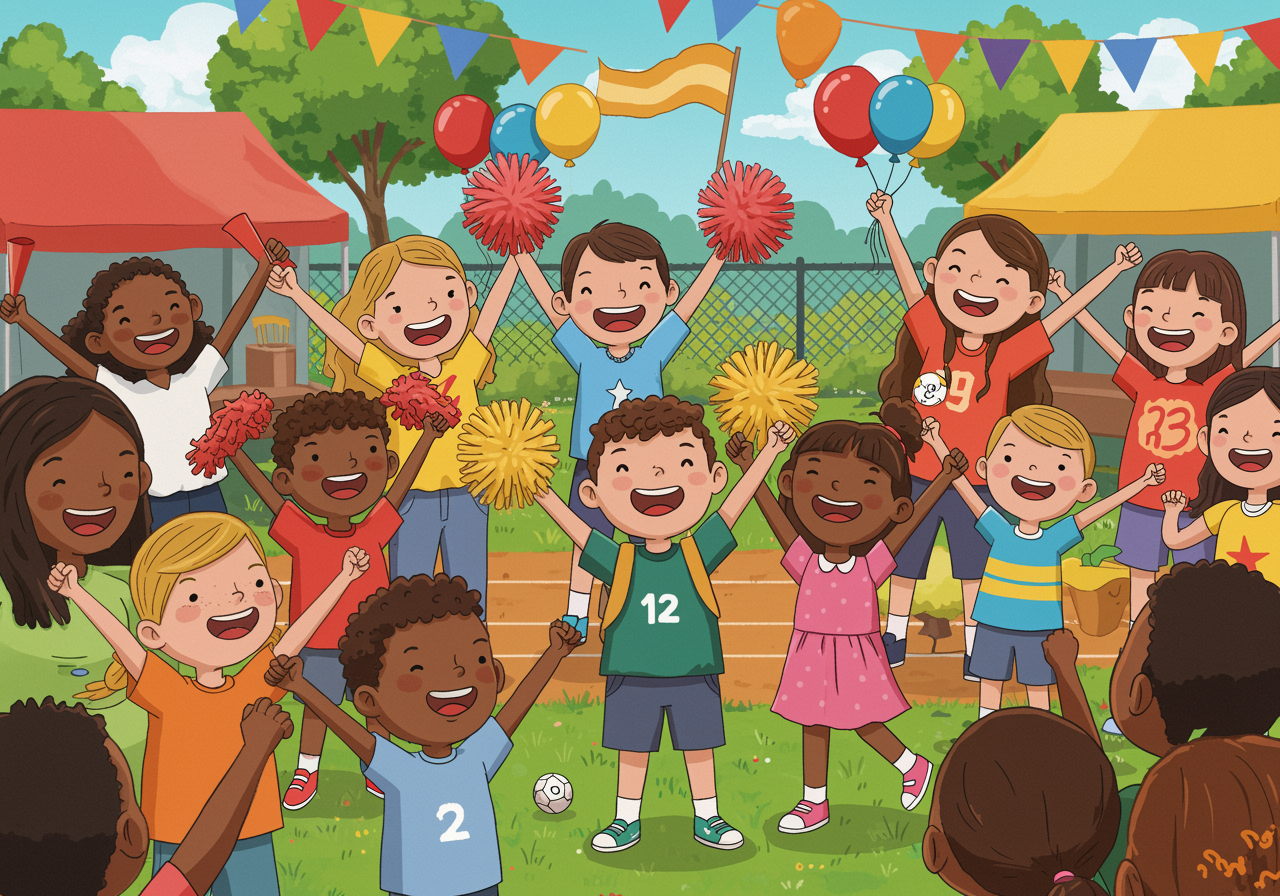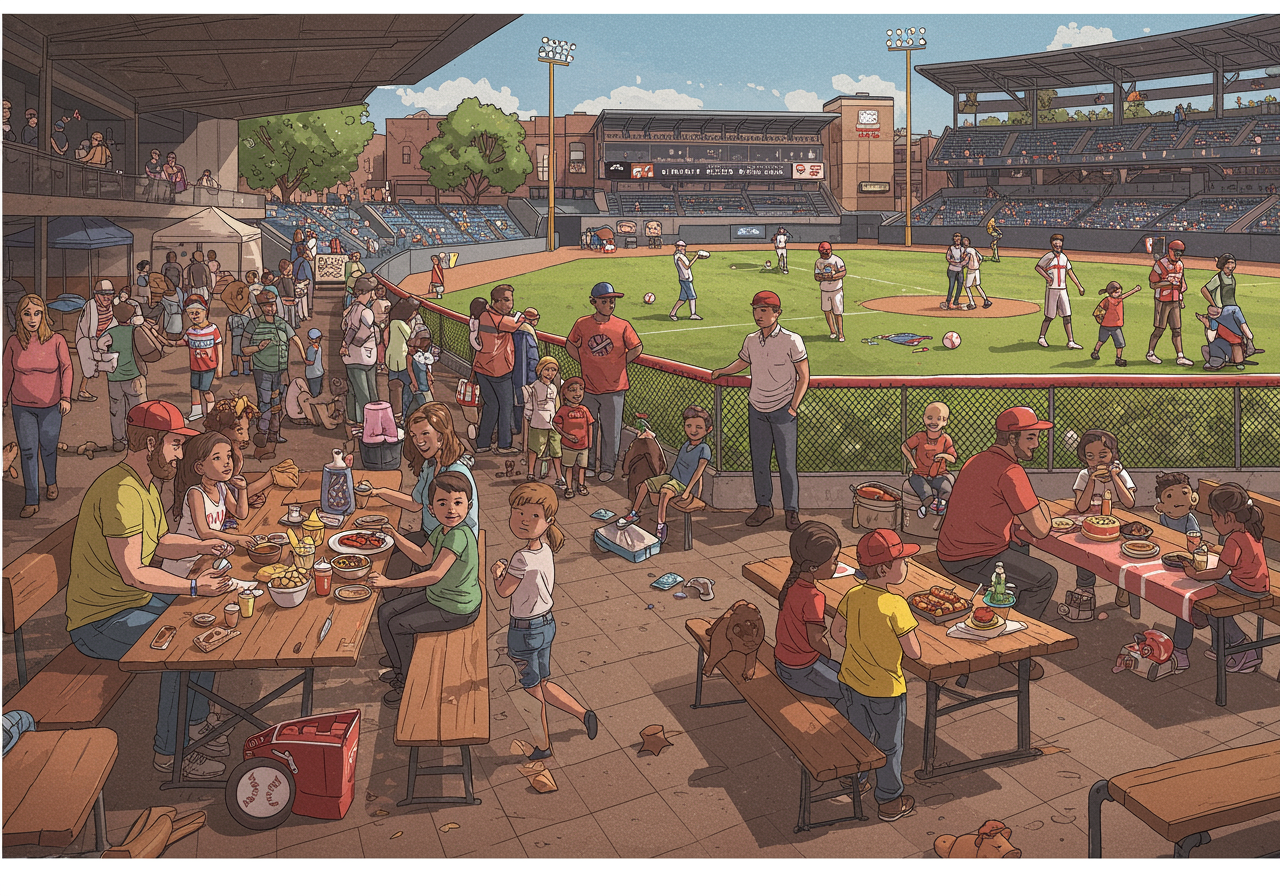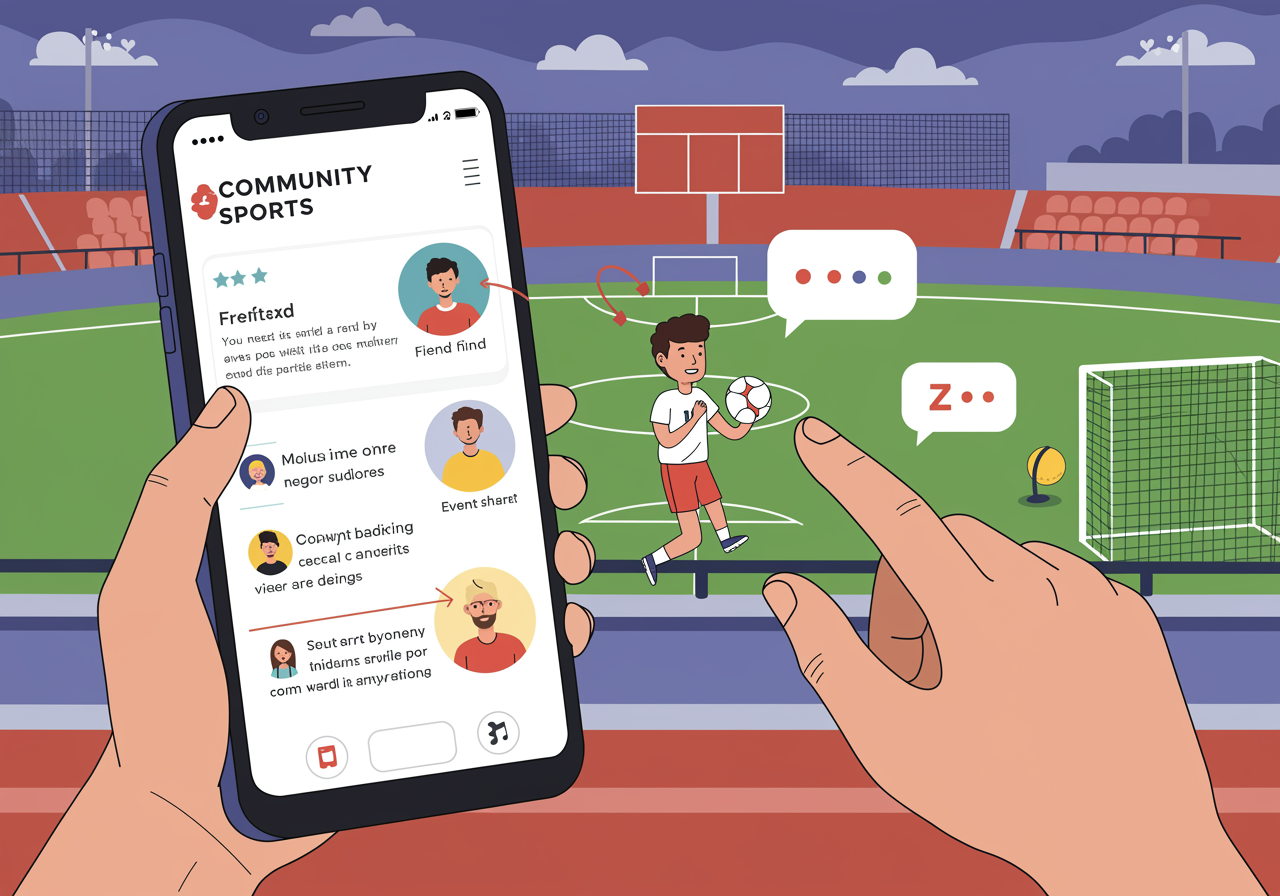From Strangers to Superfans: How Sports and Entertainment Venues Create Community Magic
Discover how a simple stadium or concert hall can turn a neighborhood into a family
Ever wonder why people get so excited about their local team or favorite venue? Let’s explore how these special places bring communities together in amazing ways!
Overview
Think about the last time your family went to a game, concert, or festival. Remember how everyone around you was cheering, singing, or laughing together? Sports fields and entertainment venues are like community magnets that pull people together and create shared memories. These places don't just host events – they become the heart of neighborhoods, giving people reasons to celebrate, support each other, and feel proud of where they live. Understanding how these venues work their magic helps us see why communities invest in them and how technology makes these connections even stronger.

Understand in 30 Seconds
Get up to speed quickly
- Shared Experiences Create Bonds: When people cheer for the same team or sing along to the same song, they instantly feel connected to strangers around them.
- Breaking Down Barriers: Sports and entertainment bring together people from different backgrounds, ages, and neighborhoods who might never meet otherwise.
- Technology Amplifies Connection: Modern venues use apps, social media, and interactive features to help fans connect before, during, and after events.
- Economic Community Impact: These venues create jobs and bring visitors who spend money at local restaurants and shops, strengthening the whole area.
Real Life Scenario
Situations you can relate to
Imagine your town is getting a new baseball stadium. At first, some people might wonder if it's worth the cost. But then opening day arrives! Families from across the city come together, wearing team colors and high-fiving strangers. Kids meet other kids in the stands, parents start carpooling to games, and local businesses see more customers. The stadium's app lets fans share photos and connect with others in their section. Soon, game nights become family traditions, and people who've lived in the same neighborhood for years finally meet each other in the parking lot. What started as just a building becomes the place where your community tells its story – through wins, losses, and everything in between.

Role Play
Spark a conversation with “what if” scenarios
What if you were the mayor deciding whether to build a new concert venue in your town?
- Role play: Hold a family 'town hall' meeting where everyone presents pros and cons, discussing how it might change the community.
What if you designed an app to help people connect at sporting events?
- Role play: Sketch out app features that would help shy kids make friends or help families find others with similar interests.
What if your school's football field became a community gathering space year-round?
- Role play: Brainstorm creative ways to use the space for farmer's markets, movie nights, or festivals that bring neighbors together.
FAQs
Frequently asked questions people want to know
Why do people get so emotional about their local teams?
Teams represent the community's identity and values. When they win, the whole community feels proud and successful together.
How do venues help people from different backgrounds connect?
Sports and music create common ground – everyone can cheer for the same goal or enjoy the same song, regardless of their differences.
What role does technology play in modern venues?
Apps help fans find friends, order food, share experiences on social media, and even participate in interactive games during breaks.
Examples in the Wild
See how this works day to day
- Mercedes-Benz Stadium in Atlanta uses an app that helps fans find friends in the crowd and order concessions to their seats, making game day more social and convenient. (Mercedes-Benz Stadium Official Website)
- Fenway Park's Green Monster became a symbol of Boston's resilience, especially during the 2013 World Series following the Boston Marathon bombing. (ESPN Sports)
- The new SoFi Stadium in Los Angeles was designed with community spaces and technology that hosts year-round events, not just football games. (Los Angeles Times)
- Soldier Field in Chicago serves as a gathering place during emergencies and community celebrations, showing how venues become civic centers. (Chicago Tribune)
In Summary
What you should know before you start
- Sports fields and entertainment venues create instant connections between strangers through shared experiences and emotions
- These places break down social barriers by bringing together people from all backgrounds around common interests
- Modern technology in venues helps amplify community connections through apps, social media, and interactive features
- Venues strengthen local economies and create gathering spaces that become central to community identity and pride
Pro-tip for Parents
You got this!
If your child seems hesitant about community events, start small. Even watching a local high school game or attending a small concert can show them how these experiences create connections. Let them observe how strangers become temporary friends through shared excitement, and point out the different kinds of people all enjoying the same moment together.

Keep an Eye Out For
Find these examples in everyday life
- New stadium or venue openings in your area and how the community responds
- Technology features at events you attend – apps, screens, interactive elements
- Community events at local schools or venues that bring different groups together
Explore Beyond
Look up these related research topics
- How social media platforms create virtual communities around shared interests
- The psychology of why humans need to feel part of a group or tribe
- How urban planning and architecture can encourage or discourage community interaction